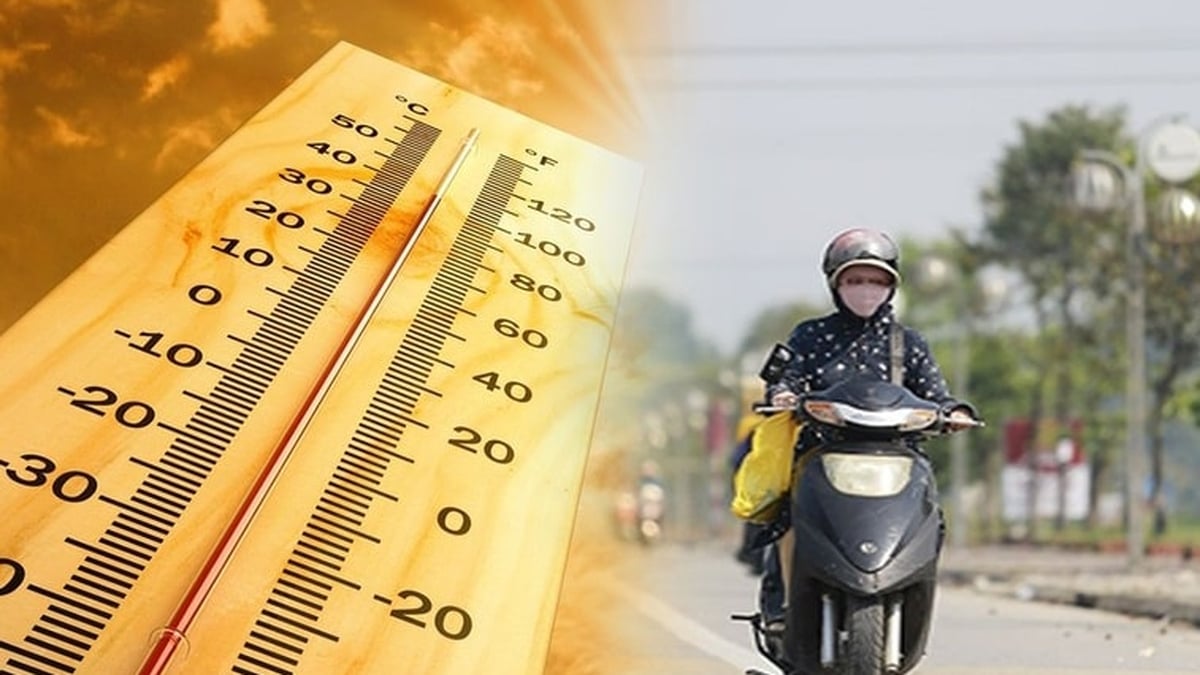More and more young people are interested in crypto assets - Photo: DUC THIEN
This would be very difficult to implement due to the anonymity and complexity of blockchain technology.
Many experts and investors affirmed this when talking to Tuoi Tre about the draft amendments to decrees related to penalties in the securities sector, including new regulations on crypto, recently announced by the Ministry of Finance .
In addition, according to experts, applying sanctions, with the highest fine of up to... 2 billion VND, when the legal framework is not yet complete will reduce the feasibility and persuasiveness of the proposed regulations.
Difficult to implement, causing confusion for investors?
Speaking on a cryptocurrency forum with nearly 50,000 members, the admin of this forum expressed "surprise" when he said that for the first time in a draft decree proposed by the Ministry of Finance, crypto was clearly mentioned - but not for legal recognition, but for... punishment!
"There is no legal definition, tax mechanism, insurance and dispute resolution framework if assets are hacked or stolen. So why ask people to transfer control of assets to centralized organizations - when there is no guarantee of safety?", this admin asked. The post immediately received a lot of interactions, most of whom expressed confusion.
There are many mixed reactions from investors about the draft of the Ministry of Finance. For example, with this market manipulation behavior, Mr. Le Minh (HCMC) said that it is necessary to define what price manipulation is, because crypto projects when listed on the exchange must act as MM (Market Maker) to create liquidity for the project in the market.
"Moreover, are projects with investors participating in marketing, hiring KOLs to market and push up prices, considered price manipulation?", he asked, arguing that transferring crypto to licensed domestic exchanges goes against the decentralization of blockchain technology.
Besides, creating a wallet does not mean that it can store crypto, it requires a very high level of security. "With wallets, there are hot wallets (online) and cold wallets (offline), which are personal data, so investors cannot be forced to transfer it to domestic exchanges. This is the investor's private property, owned by the individual," said Mr. Minh.
Many investors believe that regulations like those in the draft could lead to companies in Vietnam moving to Singapore, Dubai, Hong Kong, etc. Therefore, it is possible to refer to the crypto management models of Singapore or Dubai, etc.
"Many regulations in the draft could make the Vietnamese crypto market, which was born late, less flexible and less competitive compared to other countries," said Mr. Dinh Lan, a crypto investor.
According to Mr. Lan, forcing crypto to be transferred to Vietnam is not consistent with the decentralized and cross-border nature of the crypto market, especially in the context that Vietnam's existing technological and technical solutions are not capable enough to control this issue.
"In particular, the proposed fines of up to billions of dong for individuals are too high compared to people's income level," said Mr. Lan.
Need to build a healthy playground and effective management mechanism
Speaking to Tuoi Tre, Mr. Phan Phuong Nam, deputy head of the commercial law department at Ho Chi Minh City University of Law, said that many reports from international organizations have shown that Vietnam is one of the countries with the highest crypto ownership rate in the world . The heat from this market is huge and regulations related to crypto have an impact on a large number of people.
"It is advisable to simultaneously issue regulations for testing crypto transactions and a sanctioning mechanism. It must clearly explain what crypto includes, how transactions are conducted, where, what the regulations are, how investors are protected...", Mr. Nam said, adding that applying sanctions when the legal framework is not yet complete will reduce the feasibility and persuasiveness of the proposed regulations.
According to Mr. Nam, a complete management framework for this market is very necessary. However, Vietnam has only set up a trial mechanism, which means there are still changes. Therefore, requiring investors to bring them back to manage in Vietnam to control and protect their legitimate rights and interests is good, but the timing needs to be reconsidered, and there should be no rush.
"Instead of imposing penalties, when testing in the early stages or officially launching, let the exchanges prove their capacity, demonstrate efficiency, high security, a safe legal environment, and investors will automatically switch back," said Mr. Nam.
Mr. Dang Tran Phuc, Chairman of the Board of Directors of AzFin Vietnam Joint Stock Company, also said that without an optimal mechanism to develop this market, it will be very difficult to attract the large amount of crypto that Vietnamese people own back.
"There needs to be an attractive mechanism to attract investors to Vietnam by building a healthy playground and an effective management mechanism," said Mr. Phuc.
According to Mr. Phuc, investors holding small amounts of crypto may soon move back to Vietnam. But for those with large assets, whether or not to move back will require time to evaluate and see if domestic exchanges ensure safety, security, and convenience in transactions.
"The crypto market operates on the blockchain platform, is decentralized, borderless and not controlled by any organization or country. Therefore, attracting this large resource back to the country requires extremely competitive mechanisms that are difficult to apply rigidly," said Mr. Phuc.
Can be fined up to 2 billion VND for violations in the crypto market
The draft amendments to decrees related to sanctions in the securities sector, just announced, the Ministry of Finance has introduced many completely new regulations related to crypto.
Accordingly, a fine of 1.5 - 2 billion VND will be imposed on the act of using inside information to trade crypto or manipulate the crypto market in Vietnam.
Investors may also be fined from 100 to 200 million VND for not opening an account and transferring the crypto they own to store and trade at a crypto service provider licensed by the Ministry of Finance within the prescribed time limit.
For organizations providing crypto services, they will be fined from 1 to 2 billion VND for putting crypto into transactions without reporting to competent authorities.
These organizations may face a fine of 1.5 - 2 billion VND for organizing a crypto trading market without a license. In addition, if they do not verify the identity of investors opening accounts, organizations will be fined from 300 - 500 million VND.
Crypto cannot be regulated like stocks
Source: “Global Crypto and Web3 Survey” Report 2024 by Blockchain and Web3 Software Company Consensys - Data: DUC THIEN - Graphics: TAN DAT
Speaking to Tuoi Tre, a representative of a crypto exchange (who asked not to be named) said that lawmakers are equating crypto with securities. In fact, crypto is completely different from securities. Therefore, if crypto is managed like securities, it is likely to destroy the development of the domestic blockchain industry, making it less flexible and less competitive compared to other countries.
According to this person, the State needs to recognize crypto as a valuable asset (like gold) to protect the rights of investors holding crypto, which leads to the obligations that investors need to fulfill when participating. "The question is: Which organization is the organization providing crypto services licensed by the Ministry of Finance, how does it operate, is it effective and safe?", this person asked.
According to this person, Vietnam is preparing to have trial exchanges, while in the world, exchanges have been operating for a long time, some exchanges have even been operating for over 10 years.
Moreover, providing services in the digital environment has many risks. For example, after being hacked with a large amount of money, the Bybit exchange bought back all the hacked assets to stabilize users' psychology, but many users still withdrew their assets.
"Crypto investors do not depend on exchanges but can keep assets in cold wallets, hot wallets, defi applications... so forcing assets to be transferred to one place is forced and protective of service providers in Vietnam.
Therefore, organizations providing crypto services in Vietnam need time to operate, demonstrate stability and safety in the digital space to affirm quality and trust with users," he said.
Regulating the crypto market is necessary
Mr. Dang Tran Phuc
Mr. Dang Tran Phuc said that it may be difficult to expect a large amount of crypto to be transferred to Vietnam in a short time, but when the legal framework for this market is officially applied, transferring money across borders for trading will be very difficult.
The proposal in the draft has caused concern for a segment of investors.
However, this is a draft for a very new issue, the legal framework is not yet complete, comprehensive, and closely follows the market, but there are still changes and adjustments. Therefore, investors do not need to worry too much.
"Managing this market is correct to ensure no tax loss and to avoid activities related to money laundering or other illegal activities," Mr. Phuc emphasized.
Need flexible legal framework to protect investors
Mrs. Krist Pham
Ms. Krist Pham, a blockchain technology communications and marketing expert, said that many countries around the world separate the management of securities and crypto, due to their different legal nature.
Specifically, securities (stocks, bonds, warrants...) are traditional financial assets representing businesses.
Issuance and trading are closely monitored under the Securities Law, a legal system that has existed for decades.
Traditional stock exchanges operate during business hours and have a centralized counterparty mechanism. Meanwhile, crypto (especially tokens like BTC, ETH...) often do not represent corporate ownership, and can be utility, payment, or simply speculative assets, with a cultural element of a specific user community.
Crypto is volatile, operates 24/7, is often decentralized and highly flexible. "Each sector needs a separate legal framework because the Securities Law has been completed and relatively stable for decades, while crypto is a new sector, requiring a flexible, scalable legal framework that keeps up with technology while ensuring user protection," said Ms. Krist Pham.
BINH KHANH - DUC THIEN
Source: https://tuoitre.vn/chuyen-crypto-ve-viet-nam-luu-tru-giao-dich-chua-phu-hop-kho-kha-thi-20250520061459707.htm























































![[Maritime News] More than 80% of global container shipping capacity is in the hands of MSC and major shipping alliances](https://vphoto.vietnam.vn/thumb/402x226/vietnam/resource/IMAGE/2025/7/16/6b4d586c984b4cbf8c5680352b9eaeb0)













































Comment (0)